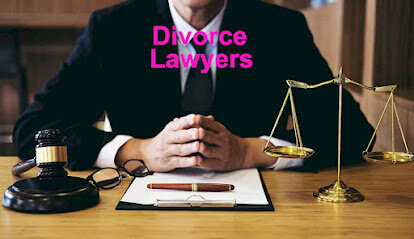Best Bankruptcy & Debt Lawyers in New York
Share your needs with us, get contacted by law firms.
Free. Takes 2 min.
Or refine your search by selecting a city:
List of the best lawyers in New York, United States
United States Bankruptcy & Debt Legal Articles
Browse our 2 legal articles about Bankruptcy & Debt in United States written by expert lawyers.
- Filing Chapter 7 in 2026 United States: New Income Limits
- Chapter 7 gives a near-total discharge of most unsecured debt, but you must pass a "means test" that compares your household income to your state's median income for your family size in 2026. The U.S. Trustee Program updates the state median income numbers at least once a year; you qualify... Read more →
- Debt Collectors in the US: Stop Harassment and Verify Debt
- You have strong federal rights under the Fair Debt Collection Practices Act (FDCPA) and CFPB Regulation F. Collectors cannot harass you, must send a validation notice, and must stop collecting until they verify if you dispute in writing within 30 days. Tell collectors to stop contacting you, then follow up... Read more →
About Bankruptcy & Debt Law in New York, United States
Bankruptcy and debt law in New York is a legal framework that helps individuals and businesses manage, reorganize, or eliminate debt when they are unable to meet financial obligations. Federal bankruptcy law typically governs these proceedings, but New York also has its own specific statutes and exemptions that play a significant role in the process. In New York, individuals can file for different types of bankruptcy, the most common being Chapter 7 and Chapter 13, depending on their specific financial circumstances. The law aims to offer debt relief while ensuring fair treatment for creditors, and sometimes allows individuals to retain certain essential assets during bankruptcy.
Why You May Need a Lawyer
Bankruptcy and debt situations can rapidly become complex and emotionally draining. Many people consider hiring a lawyer when they are facing issues such as:
- Receiving persistent calls and notices from creditors and collection agencies
- Getting sued over unpaid debts or facing wage garnishments
- Dealing with home foreclosure or vehicle repossession
- Contemplating any type of bankruptcy filing and unsure of eligibility
- Struggling to understand which assets they can keep after filing bankruptcy
- Needing to negotiate settlements or repayment plans with creditors
- Worried about the impact of bankruptcy on their credit score and future borrowing ability
- Operating a small business and unable to manage debts
- Attempting to understand the consequences of cosigned loans or jointly held debts
Legal guidance can help prevent costly mistakes and ensure the best possible outcome given your specific situation.
Local Laws Overview
New York’s bankruptcy and debt laws intersect with federal law but include important local specifics, such as:
- Exemptions: New York allows debtors to choose between state and federal exemptions during bankruptcy, which can protect property like a personal residence, vehicle, and personal effects up to certain values.
- Homestead Exemption: New York offers one of the highest homestead exemptions in the country, allowing homeowners to protect a significant amount of equity in their homes. The amount varies by county.
- Debt Collection Protections: New York regulates debt collection practices to protect consumers from harassment and unfair collection tactics. For instance, collection agencies must be licensed by the state and abide by strict communication rules.
- Statute of Limitations: In New York, most credit card and contract debts have a six-year statute of limitations, after which creditors cannot sue to collect.
- Foreclosure Process: New York is a judicial foreclosure state, meaning lenders must proceed through the courts to foreclose on property, giving homeowners certain procedural rights and more time to seek solutions.
- Means Test: For Chapter 7 bankruptcy, eligibility is determined in part by the means test, which compares your income to the New York median for your household size.
Frequently Asked Questions
What types of bankruptcy are available to individuals in New York?
Most individuals file for either Chapter 7 (liquidation) or Chapter 13 (reorganization) bankruptcy. Chapter 7 allows discharge of many unsecured debts, while Chapter 13 sets up a repayment plan over three to five years.
Can I keep my house or car if I file for bankruptcy in New York?
In many cases, you may be able to keep your home or car by using exemptions, as long as you are current on payments and do not have significant equity above the exemption limit. A lawyer can help you review your options based on your circumstances.
Will filing for bankruptcy stop creditor harassment and collections?
Yes, filing for bankruptcy triggers an automatic stay, which legally requires most creditors to stop collection activities, including phone calls, wage garnishments, lawsuits, and foreclosures.
How does bankruptcy affect my credit score?
A bankruptcy filing will appear on your credit report for seven to ten years. While it can lower your score, for many people it can also be a step toward financial recovery once unmanageable debts are discharged.
What is exempt property in New York bankruptcy?
Exempt property is protected from creditors or sale during bankruptcy. In New York, this may include a portion of the equity in your home, vehicle, retirement accounts, certain personal property, and wages, depending on your chosen exemption scheme.
Are all debts discharged in bankruptcy?
No. Some debts typically cannot be discharged, such as most taxes, student loans, child or spousal support, and debts incurred through fraud or willful injury.
How often can I file for bankruptcy in New York?
If you previously filed Chapter 7, you typically must wait eight years to file again. Different time limits apply if switching between Chapter 7 and Chapter 13. A lawyer can analyze your situation for specific timelines.
Can bankruptcy stop foreclosure on my home?
Filing for bankruptcy usually triggers an automatic stay, temporarily stopping foreclosure. Chapter 13 may allow you to catch up on past due mortgage payments over time.
Am I required to go to court if I file for bankruptcy in New York?
Most filers must attend a "341 meeting of creditors," but rarely have to appear in court unless there are disputes or special circumstances.
How much does it cost to file for bankruptcy in New York?
There are court filing fees and, if you hire one, attorney fees. The cost can vary widely but Chapter 7 filing fees are typically several hundred dollars, while attorney fees can range from $1,000 to $2,500 or more depending on the complexity of your case.
Additional Resources
If you need more information or support regarding bankruptcy and debt in New York, consider these resources:
- United States Bankruptcy Court - Southern, Eastern, Northern, and Western Districts of New York: Official court sites provide procedural forms, filing instructions, and schedules.
- Legal Services NYC: Offers free civil legal help to low-income residents facing bankruptcy or foreclosure.
- New York State Attorney General's Office: Provides consumer protection advice and handles complaints regarding debt collectors.
- New York City Bar Association Legal Referral Service: Connects individuals with qualified attorneys for consultations.
- Consumer Financial Protection Bureau: Offers extensive guidance on dealing with debt or harassment from collectors.
- National Foundation for Credit Counseling: Non-profit agencies that provide credit counseling and debt management plans.
Next Steps
If you are struggling with debt or considering bankruptcy in New York, take these steps:
- Review your finances carefully and gather documentation about your debts, income, and assets.
- Explore free credit counseling services to understand your options.
- Consult with a qualified bankruptcy attorney who practices in New York to assess your eligibility, rights, and the best course of action for your situation.
- Do not ignore notices from creditors or the courts - acting promptly can improve your chances of a favorable outcome.
- Prepare for your appointment by writing down your questions and bringing relevant paperwork.
Bankruptcy and debt issues can be overwhelming, but with the right information and legal guidance, relief and a fresh start are possible.
Lawzana helps you find the best lawyers and law firms in New York through a curated and pre-screened list of qualified legal professionals. Our platform offers rankings and detailed profiles of attorneys and law firms, allowing you to compare based on practice areas, including Bankruptcy & Debt, experience, and client feedback.
Each profile includes a description of the firm's areas of practice, client reviews, team members and partners, year of establishment, spoken languages, office locations, contact information, social media presence, and any published articles or resources. Most firms on our platform speak English and are experienced in both local and international legal matters.
Get a quote from top-rated law firms in New York, United States — quickly, securely, and without unnecessary hassle.
Disclaimer:
The information provided on this page is for general informational purposes only and does not constitute legal advice. While we strive to ensure the accuracy and relevance of the content, legal information may change over time, and interpretations of the law can vary. You should always consult with a qualified legal professional for advice specific to your situation.
We disclaim all liability for actions taken or not taken based on the content of this page. If you believe any information is incorrect or outdated, please contact us, and we will review and update it where appropriate.
Browse bankruptcy & debt law firms by service in New York, United States
New York, United States Attorneys in related practice areas.
Browse bankruptcy & debt law firms by city in New York
Refine your search by selecting a city.











